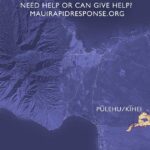Planning a trip to the Dominican Republic? Before you pack your bags, it’s natural to ask, “Is It Safe To Travel To The Dominican Republic Today?” This guide provides a comprehensive overview of safety and security concerns, helping you make informed decisions and enjoy a safer trip.
Understanding the Risk Level
The Dominican Republic generally requires a high degree of caution due to crime. However, understanding the specific risks and taking appropriate precautions can significantly enhance your safety.
Safety and Security Concerns
Border with Haiti
Currently, the land and sea borders with Haiti are closed to travellers. It’s crucial to note that the Embassy of Canada in Santo Domingo cannot assist with entry into the Dominican Republic from Haiti. The security situation in border areas, especially in Dajabón, is unpredictable, with frequent disturbances and occasional violence. Emergency services may be limited.
Border Crossing
If you choose to travel near the border:
- Keep your passport accessible.
- Avoid traveling after dark.
- Monitor local media for updates.
- Follow instructions from local authorities and security forces.
Crime
Crime is a significant concern throughout the Dominican Republic, especially in major cities. Police response times can be slow, particularly outside tourist areas.
Petty Crime
Petty crime, such as pickpocketing and bag-snatching, is common, with tourists frequently targeted. Thieves often seek visible money or valuables and may even grab phones. Crime tends to increase during holiday periods.
Incidents occur:
- At resorts and hotels (including inside rooms and safes)
- Inside cars (especially rental cars)
- At beaches
- At airports
- At bus stations
- On public transportation
Drive-by robberies are frequent, with thieves on motorcycles or bicycles snatching bags from pedestrians or reaching into vehicles at red lights. At airports, checked baggage may be targeted.
 Petty Crime
Petty Crime
To mitigate these risks:
- Stay in hotels or resorts with good security.
- Keep personal belongings secure at all times.
- Carry small amounts of money and avoid displaying wealth.
- Keep electronic devices out of sight.
- Keep car doors locked and windows up.
- Avoid packing valuables in checked luggage.
Violent Crime
Violent crime, including armed robberies and assaults, does occur, sometimes targeting foreigners. Incidents mainly happen after nightfall in large cities. Criminals may target cars for armed robberies, particularly at night. Arriving and departing during daylight hours is advisable.
During your stay:
- Stay at reputable hotels or resorts with adequate security.
- Be aware of your surroundings.
- Keep car doors locked and windows up, especially at traffic lights.
- Avoid walking alone in unpopulated areas or unpatrolled beaches after dark.
- If threatened, hand over valuables and do not resist.
Sexual Assault
Sexual assault and rape incidents have occurred, even at major resorts, sometimes involving hotel employees. Victims should report incidents immediately to the nearest Canadian government office and Dominican authorities. Formal complaints to local authorities are necessary for investigations to proceed.
To protect yourself:
- Avoid secluded areas, even on resort grounds.
- Exercise caution with strangers or recent acquaintances.
- Be wary of strangers offering rides or invitations.
- Avoid public transportation or walking alone at night.
Fraud
Credit, Debit and ATM Card Fraud
Credit and debit card fraud is common, with card reader tampering (skimming) being a frequent scam. Businesses may attempt to steal card information.
- Cover the keypad when entering your PIN.
- Pay attention when others handle your cards.
- Avoid irregular or unusual card readers.
- Use ATMs in public areas or inside banks/businesses.
- Check for unauthorized transactions.
Unethical Lawyers
“Pirate lawyers” operate in tourist areas like Punta Cana, offering legal services to detained foreigners for excessive fees. The Embassy of Canada can provide a list of reputable lawyers.
Cybercrime
Cybercrime, malware attacks, and online extortion occur. Criminals may compromise public Wi-Fi networks or monitor social media. Romance scams are also prevalent.
- Be cautious when posting information or photos online.
- Use your own USB adaptor or carry an extra battery pack.
- Use secure public Wi-Fi networks.
- Beware of overly interested individuals online.
- Be wary of meeting online acquaintances in person.
- Avoid discussing travel plans near strangers.
Spiked Food, Drinks, and Other Items
Never leave food or drinks unattended or accept items from strangers, as they may contain drugs that could lead to sexual assault or robbery.
Harassment
Harassment and verbal abuse can occur, including online abuse and calls for violence. Avoid traveling alone, especially at night.
Demonstrations and Strikes
Demonstrations occur periodically, particularly in Santo Domingo, though they usually don’t affect resort areas. However, even peaceful demonstrations can turn violent and disrupt traffic.
- Avoid areas where demonstrations occur.
- Follow instructions from local authorities.
- Monitor local media for information.
Adventure Tourism
Outdoor activities like kayaking and scuba diving can be dangerous. The tourism industry is not well-regulated, and tour operators may not meet safety standards.
- Buy travel insurance covering adventure activities.
- Ensure you’re physically fit for the activity.
- Use proper equipment and bring sufficient water.
- Monitor weather conditions.
- Avoid using unsafe equipment.
Water Activities
 Beach Scene
Beach Scene
Coastal waters can be dangerous. Follow local authority warnings. Lifeguard services may not meet Canadian standards, and drownings occur every year.
- Respect swimming areas.
- Maintain a safe distance from boats.
- Respect warning flags.
- Consult locals for hazard information.
- Avoid diving in unfamiliar waters.
Riptides
Tidal changes and strong winds can cause dangerous riptides.
Roads
Road Safety
Road safety varies, and accidents are frequent. Consider hiring a professional driver. Pedestrians don’t have the right of way.
Serious car accidents are treated as criminal investigations. Report accidents to the police. Fines can be paid on the Attorney General’s website, not on the spot.
Road Conditions
Major highways are generally in good condition, but rural roads are not well-maintained. Many roads lack marked lanes. Driving can be dangerous due to unmarked speed bumps, potholes, animals on the roads, insufficient lighting, and heavy traffic.
Driving Habits
Drivers often disregard traffic laws, speed, and drive aggressively. Drinking and driving is common.
- Drive defensively.
- Plan trips in advance, especially in rural areas.
- Travel in groups during daylight hours.
- Carry a cell phone and charger.
- Fill your gas tank.
- Keep car doors locked and windows closed.
Roadblocks
Military and police roadblocks are common, particularly near the Haitian border. Be prepared to show identification.
Public Transportation
Buses
Public buses are unreliable. Use private intercity buses from reputable tour operators. Avoid open-door microbuses, which are often unregulated and poorly maintained.
Ride-Share Services
Ride-share services are available in major cities.
- Confirm the driver’s identity and license plate.
- Use security features in rideshare apps.
Taxis
Taxis are not metered. Arrange pickups with your hotel and use official airport taxis. Negotiate the fare before departure and avoid motorcycle taxis.
Air Travel
Assessments on foreign domestic airlines’ compliance with international safety standards are not made.
Entry and Exit Requirements
Entry and exit requirements are determined by each country. The Government of Canada cannot intervene if you don’t meet these requirements. Verify information with Foreign Representatives in Canada.
Passport
Until November 30, 2025, Canadians can enter the Dominican Republic for tourism with a passport valid for their entire stay. For other purposes, a passport valid for at least six months after arrival is required.
Visas
- Tourist visa: Not required for up to 30 days
- Work visa: Required
- Student visa: Required
- Residence visa: Required
Other Entry Requirements
Proof of adequate funds and your stay address may be required. Customs officials may ask for a return or onward ticket.
E-Ticket
An electronic form (E-ticket) is required for entry and exit. Complete this before boarding your flight.
Tourist Card
If entering by air, the tourist card is included in your airline ticket. If entering by sea, obtain it from the General Directorate of Internal Taxes.
Drug Screening
Drug screening may occur upon departure. Authorities may search luggage and request you sign a form (in Spanish) confirming the search was performed correctly. X-rays may also be requested.
Health
Consult a healthcare provider or travel health clinic 6 weeks before your trip for personalized health advice.
Relevant Travel Health Notices
Routine Vaccines
Ensure routine vaccinations are up-to-date, including MMR, diphtheria, tetanus, pertussis, polio, varicella, meningococcal disease, and seasonal flu.
Pre-Travel Vaccines and Medications
Discuss potential disease risks preventable by vaccines or medications with a healthcare provider.
- Hepatitis A: Vaccination recommended.
- Yellow Fever: Proof of vaccination required if arriving from certain states in Brazil.
- Measles: Ensure you are fully protected.
- Hepatitis B: Vaccination recommended.
- COVID-19: Complete a COVID-19 vaccine series.
- Influenza: Get the flu shot at least 2 weeks before travelling.
- Malaria: Antimalarial medication may be recommended.
- Rabies: Discuss rabies vaccination with a health care professional.
Safe Food and Water Precautions
- Boil, cook, peel, or leave it.
- Avoid getting water in your eyes, mouth, or nose when swimming in freshwater.
- Don’t swallow water when bathing, showering, or swimming.
Tick and Insect Bite Prevention
Protect yourself from bites with bug spray, light-colored clothing, socks, closed-toe shoes, and mosquito netting.
- Chikungunya: Protect yourself from mosquito bites.
- Dengue: Protect yourself from mosquito bites.
- Zika virus: Prevent mosquito bites and use condoms or avoid sexual contact.
- Oropouche virus disease: Protect yourself from midge and mosquito bites.
Animal Precautions
Avoid contact with stray animals, livestock, monkeys, snakes, rodents, birds, and bats. Avoid eating undercooked meat.
Person-to-Person Infections
- Stay home if you’re sick.
- Wear a well-fitting mask in crowded settings.
- Clean your hands regularly.
- Cover your coughs and sneezes.
Medical Services and Facilities
Good health care is available only in major cities. Public clinics and hospitals may be overwhelmed and lack supplies. Not all staff speak English or French. Payment may be required upfront. Ambulances are unreliable in most areas.
Make sure you get travel insurance that includes coverage for medical evacuation and hospital stays.
Medical Tourism
Be aware that legal options in case of malpractice are very limited.
Laws and Culture
Abide by local laws. Penalties for drug possession, use, or trafficking are severe. Always carry identification.
Drugs
The Dominican Republic has a zero-tolerance policy for illegal drugs, including cannabis.
Reporting a Crime
Report incidents to the local tourist police and the Canadian embassy.
Dual Citizenship
Consular services may be limited for dual citizens.
International Child Abduction
The Hague Convention applies between Canada and the Dominican Republic.
Natural Disasters and Climate
Climate Change
Extreme weather events are becoming more frequent.
Hurricane Season
Hurricanes usually occur from mid-May to the end of November.
Flooding and Landslides
Flooding occurs due to heavy rains. Exercise caution, particularly around rivers.
Earthquakes and Tsunamis
The Dominican Republic is in an active seismic zone.
Conclusion
While the Dominican Republic presents certain safety challenges, being aware of the risks and taking appropriate precautions can help ensure a safer and more enjoyable travel experience. Stay informed, be vigilant, and prioritize your personal safety.

